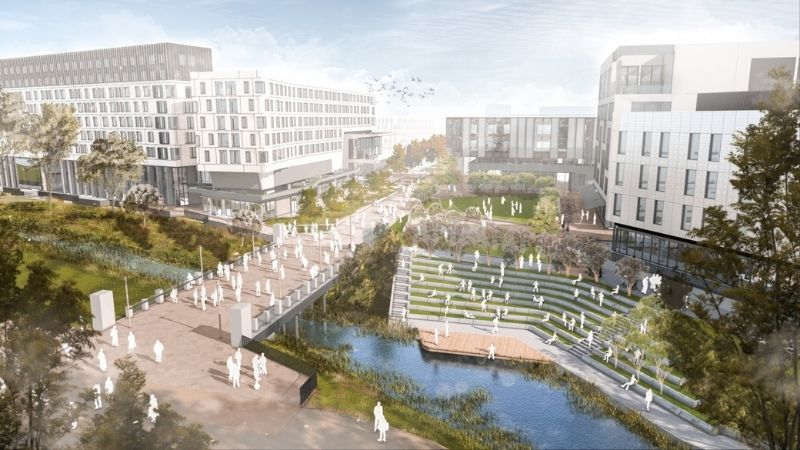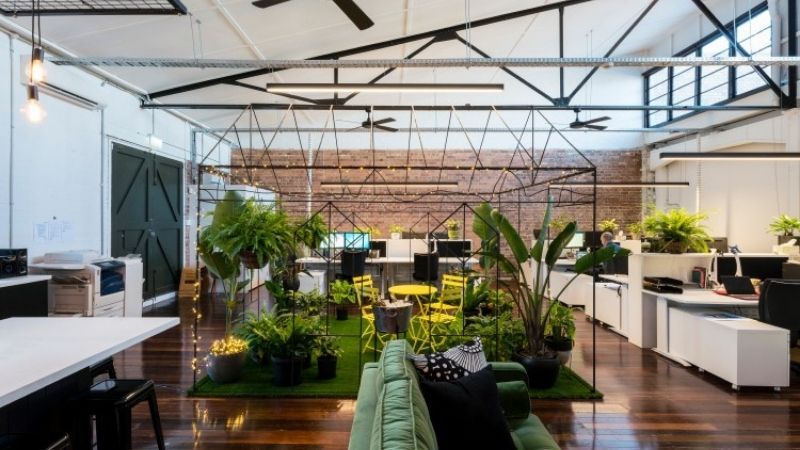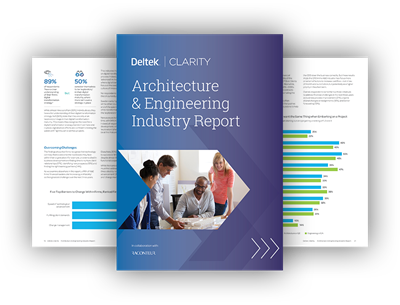
NOMINATIONS CLOSE SEPTEMBER 12 RECOGNISING THE INDIVIDUALS BEHIND THE PROJECTS
NOMINATIONS CLOSING SEPTEMBER 12 URBAN LEADER AWARDS
Resources
Newsletter
Stay up to date and with the latest news, projects, deals and features.
SubscribeASPECT Studios is an international design business, specialising in landscape architecture, urban design and wayfinding.
The firm, founded in 1993, operates across Australia, with a presence in China, Vietnam, and a new studio in Dubai, which supports a growing portfolio in the Middle East.
With a team of more than 200 designers, landscape architects and urbanists, the company’s mission is to create and design spaces that challenge and delight, while enhancing the lives of people and natural systems in an enduring way.
In this interview, founder Chris Razzell, who is also the chairman of the board, describes ASPECT Studios’ digital transformation journey, from system selection to successful deployment.
TUD: ASPECT Studios is recognised globally for delivering large infrastructure and city making projects that have a strong social and sustainable approach. Is there a specific project you are most proud of?
CR: It’s always difficult to pick a specific project as they are all unique and each year provided us with sustainable projects that we are exceptionally proud of.
But some come to mind, such as the Caohejing Office in downtown Shanghai, Darling Square in Sydney, which has received a lot of publicity, or the Caulfield to Dandenong Sky Rail project in Melbourne, where an entire railway line was lifted to create a completely new environment and experience underneath kilometres of railway.
It is really our people that I'm most proud of, rather than the projects. It’s the people who lead these projects and are the foundation of the practice that makes it special. They are the ones who are thinking through the challenges, creating and delivering a more sustainable, liveable and vibrant future for our cities.
TUD: With all these exciting projects, what problems were you trying to solve? What pushed you to look for a new ERP solution?
CR: For us, and particularly for me as chair of the board, it comes down to finding solutions that help us drive better outcomes for our projects, empower our people to give them a sense of purpose and responsibility, and improve our performance to make the company a great place to work—and ultimately being able to reward our employees.

One of the main issues we were trying to address was the multiple and isolated systems we were relying on, with off-the-shelf solutions such as MYOB and home-grown HR and project management suites. These solutions served us well at that time, however we found a growing degree of duplication between the different platforms and, consequently, a greater potential for human error.
About five to eight years ago, we were growing at a pace of 15 per cent to 20 per cent a year and we needed clear and reliable financial and project-planning forecasting. As we grew, we realised that we didn’t have the right tools in place.
As a business, you need the right tools at your fingertips to drive business forward and make proactive decisions. In our case, we have multiple local and international operations to connect and we have been on a journey for about six years to form, what we call, our one studio model.
It does not matter which studio we are in, we can work as a team across boundaries, borders and time zones. To achieve this digital transformation, we needed more robust, efficient and transparent ways to integrate our people and projects into that model.
TUD: How were these problems affecting you exactly?
CR: All these issues eventually affected our bottom line. We had a lack of data or incorrect data. Manual processes and errors in the system were costing us more and more. We couldn’t see far enough forward because we couldn’t integrate all of our studio data into the One Studio model—broken Excel formulas and incorrect data added were no longer tolerable.
We needed a system that could help solve all these problems and support the growth of the company and the collaboration we needed to drive that growth.
TUD: Since you have moved to Deltek, are you able to see key measurable benefits between your previous system and Deltek ERP?
CR: Deltek Vantagepoint has improved our ability to collaborate and share data across studios, profit centres, and has helped to remove international boundaries. Our operational effectiveness in China is in excess of 95 per cent, despite the “great firewall of China”, which is fantastic. We now have tremendous visibility across the whole company and that translates into staff enablement.
All our staff have access to the data in our system. This puts them in charge of resource allocation and their ability to drive decisions. As a result, our people are empowered and accountable for results, because they are the ones making decisions.
We now have access to information across different lines of the business, our pipeline and the work we’re targeting – something that we just didn’t believe was possible previously.

TUD: Has Deltek ERP helped you create additional value for your customers?
CR: Absolutely. First, we had excellent adoption of the system from day one and that has really allowed us to pass on the value to our clients.
We found that the resource planning feature allows us to allocate the right resources on projects, which means our clients are getting great value for money. The feature allows us to reduce issues like staff burnout, which has a critical impact on productivity and performance, particularly on large and challenging infrastructure projects.
Operating under our One Studio model, the greatest benefit to our clients is that we can now strategically match specific skill sets of an individual to an RFP through the entire lifecycle of the project, regardless of the geographic area.
For instance, we are now allocating the best skill sets from teams in Dubai, Perth and Melbourne to work on a project in Abu Dhabi. This translates into better service for our clients.
TUD: How has Deltek ERP helped facilitate your firm’s transition to remote working?
CR: We are not seeing much disruption in activities. The first quarter of the year was good for us, close to our highest billing quarter, even with all our staff now working remotely.
The fact that we had embraced cloud technology a number of years ago, and replaced all of our systems with Deltek Vantagepoint was obviously a good thing for us.

TUD: What advice would you give to someone when choosing and implementing a new ERP system?
CR: My first tip would be to wait for your firm to have reached a sufficient level of maturity before embarking.
An important component is to engage your end-users in the decision-making process. We built an excellent team, led by our chief executive Ivan Ross, supported by our chief technology officer Damien Holmes, who have worked closely with critical business functions, such as HR and commerce, within each of our studio managers.
At ASPECT Studios, the people who chose the system are those most connected to it, who are working with it, not necessarily shareholders or directors.
With our move to Deltek Vantagepoint, we had an enablement period for our staff, focused on how an ERP system will empower and enable them, rather than just being another tool to monitor and manage.
The last thing I would advise, based on our experience, is to establish an on-boarding strategy once you have made the decision.
On-boarding was very easy for us, the result of the strong relationship with the Deltek team, who shared industry best practice. We have really partnered with Deltek.
Taking part in the Deltek Insight Conference in the US was a mind opener on what we could achieve together.
Collaborating with Deltek has been successful for us and we have already made great progress.
Discover how Deltek’s solutions could benefit your business.
The Urban Developer is proud to partner with Deltek to deliver this article to you. In doing so, we can continue to publish our daily news, information, insights and opinion to you, our valued readers.